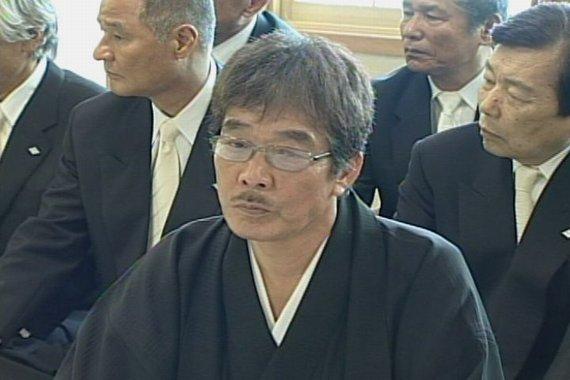
OFAC Sanctions Prominent Japanese Yakuza Member
On December 9th 2015, the U.S. Department of the Treasury’s Office of Foreign Assets Control (OFAC) issued a press release designating Tadamasa Goto, a Japanese yakuza or gangster member known as the John-Gotti of Japan, as a person completely prohibited from dealing with U.S. financial markets. OFAC’s justification for freezing all of Goto’s assets, held either in the U.S. or controlled by U.S. persons, centers on a global crackdown by OFAC, and the Obama Administration, to contain and ultimately eliminate funding for transnational criminal organizations (TCOs).
While the name ya-ku-za, literally translated as a losing combination (8-9-3), originated from a card game similar to blackjack, the origins of the gangsters’ organizational structure are said to have emanated from master-less samurai in the 17th century. Subsequently, in the 18th century, landless bandits began to group together, forming families while establishing eternal bonds. Tadamasa Goto rose to notoriety after founding the Goto-gumi, a Fujinomiya-based affiliate of the all powerful Yamuguchi-Gumi, one of the world’s largest gangs with an estimated revenue of $6 billion annually. Goto-san has seemingly entered forced retirement, at the direction of the Yamuguchi-Gumi, but has since relocated to Cambodia where he has allegedly laundered funds to his now semi-defunct organization, the Goto-gumi.
In 2001, the FBI arranged for Goto-san to travel to the U.S. to receive a liver transplant, in exchange for information on front companies for illegal activities, operating in the U.S., as well as the whereabouts of certain alleged gangsters. According to sources within the Goto-gumi organization, 800 front companies were established in the U.S., ranging from investment and audit firms to pastry shops. Additionally, the syndicate also set up their own bank in California according to underworld sources, but this has never been independently confirmed. If the rumors are true, then this could be a reason for adding Goto-san’s name to OFAC’s list of blocked persons.
The FBI operation was a bust, in that Goto-san received a new liver ahead of a long waiting list. His testimony did not yield any concrete information or leads, which could have been used for arrests or progress on the war against organized crime. An American journalist began investigating this deal, but was subsequently threatened by mobsters associated with Goto-san and received police protection. The story remained unpublished, at least initially. However, the contents were subsequently leaked, prior to the release of the author’s book, culminating in an increased police presence both in Japan and in the U.S. for the author and his family.
Following the FBI scandal, Goto-san officially retired in 2008, severing ties with the Yamuguchi-Gumi. He has since attained spiritual enlightenment, by becoming a Buddhist priest with a new name, Chyuei Gotou. Chyuei wrote an autobiography in 2010, which swiftly became a bestseller. All of the proceeds from the book were donated to charitable organizations in Myanmar and Cambodia: Angkor Association for the Disabled and Mogok Vipassana Temple. Goto-san’s recent altruism is most inspiring, calling into question the lack of evidence cited for blocking his name. At the very least, he has exhibited a desire to change his ways by helping others, which could be a mitigating factor for past transgressions.
While Japan is not a targeted country or foreign regime for OFAC Sanctions purposes, there are 33 Japanese entities (both individuals and corporations), enumerated on the Specially Designated Nationals and Blocked Persons List (SDN List). As part of a crackdown to block the property of TCOs, President Obama issued an Executive Order in 2011. This order gave the Secretary of the Treasury, in consultation with the Attorney General and the Secretary of State, broad power to block property in the U.S., or that is in the possession of U.S. persons, if a foreign person designated pursuant to the order has an interest in such property. To be designated pursuant to the order, a foreign person would have to be a significant TCO, to have materially assisted such an organization, or be owned or controlled by such an organization.
There are certain recognized procedures for delisting one’s name from the SDN List. For example, a person who believes that the designation occurred due to mistaken identity may submit information to OFAC credibly demonstrating such a mistake. Alternatively, or in conjunction, an individual can pursue a remedy of removing their name from the SDN List, by “submitting arguments or evidence that the person believes establishes insufficient basis exists for the designation.” Again, this information should be credible and verifiable.
The evidence submitted can demonstrate why the blockage was made in error, while justifying a reason for reconsideration of the initial designation. In Goto-san’s case, he is well known to the Japanese police and government as an infamous mobster. However, his recent altruistic behavior has evinced a willingness to become a morally upstanding citizen. Nonetheless, it may be difficult for his name to be removed from the SDN list, without a substantial change in factual circumstances.
The author of this article is Winfield Glascock, a licensed solicitor in New South Wales, Australia.
Disclaimer: Blog posts should not be relied upon as legal advice and are only provided for informational purposes. Information contained in blog posts may also become outdated with the passage of time as laws change and U.S. foreign policy and national security objectives evolve.

